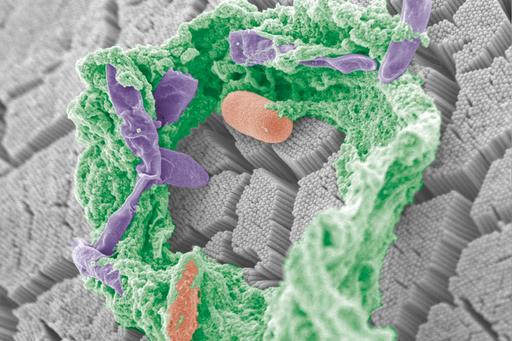Intestinal bacteria
Is there a link between the composition of the intestinal microbiota and type 2 diabetes? Are gut bacteria the key to curing type 2 diabetes? Here, you can read about pioneering research at the Institute of Medicine that has great potential to transform treatment for many of our most common diseases.
In the beginning of 2000s, Professor Fredrik Bäckhed demonstrated that the gut microbiota affects obesity and the fat content of our bodies: a sensational discovery in a relatively new and unexplored research area. In the past few years, interest in the intestinal microbiota has increased exponentially, and the Institute has been conducting successful research on the topic of gut bacteria for several years now.
Unique research
Our scientists carry out translational research on these bacteria to understand how they and our diet can act jointly to influence our metabolism. The goal of the researchers at the Wallenberg Laboratory for Cardiovascular and Metabolic Research is to find new ways of preventing and treating type 2 diabetes and cardiovascular disease.
Our research areas
- How the gut microbiota affects our metabolism.
- How the gut microbiota is connected with type 2 diabetes and cardiovascular disease.
- How the gut microbiota produces molecules.
- Gut bacteria as a cure for type 2 diabetes.

Groundbreaking discoveries
In the past few years, researchers at the Wallenberg Laboratory have made several major discoveries, notably that:
- Patients with type 2 diabetes have an altered gut microbiota.
- In patients who have undergone a gastric bypass, the gut microbiota is altered.
- The gut microbiota produces molecules that can contribute to the development of type 2 diabetes
Translational research
* Translational research means that results from experimental research are transferred to health care to benefit patients, or that observations or problems in health care give rise to new research ideas.
Close connection between research and education
There is close cooperation between the Institute’s research and our education and training, in which many of our researchers too are involved. They supervise doctoral students and teach on our regular programmes, freestanding courses and vocational care programmes within Sahlgrenska Academy.

